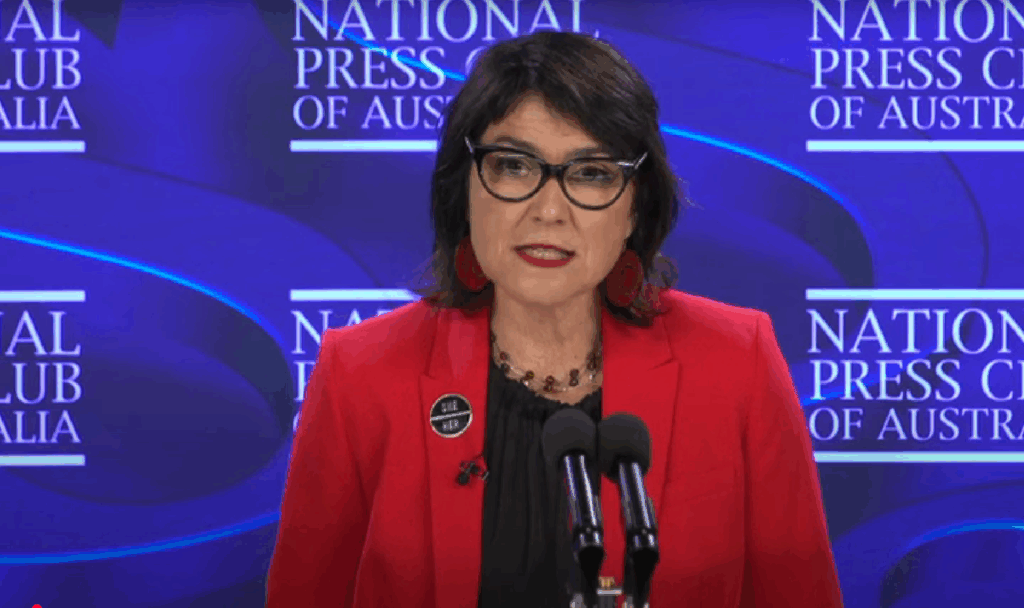Australia’s Sex Discrimination Commissioner Dr Anna Cody says we are at a critical moment for gender equality, calling on governments and workplaces to reimagine gender norms, concepts of merit, economic equality and how we approach gendered violence.
Dr Cody also called for the overhaul of the use of non-disclosure agreements (NDAs) in workplace sexual harassment cases, banning them except where they are requested by a victim-survivors who has access to legal advice.
“One of the major achievements of the #MeToo movement was the sense of power and collective voice which women gained through speaking out. NDAs stifle this,” she told the National Press Club on Wednesday.
“NDAs undermine the transparency that is essential for genuine accountability. Contributors to the project consistently noted that NDAs and confidentiality agreements perpetuate a culture of silence. They prevent us from identifying and addressing the drivers and barriers of workplace sexual harassment – especially when the victim-survivor is already facing systemic barriers like racism, visa insecurity and cultural stigma.”
In her addresss at the National Press Club, Dr Cody called for a national prevalence survey on workplace sexual harassment in 2026, so we can know the true scale of the problem in Australia.
“We need education that reaches the grassroots, delivered in partnership with community groups who work with those most at risk,” she said.
On family and domestic violence, Dr Cody said community-led justice reinvestment is an effective tool to address gender-based violence but there is no one solution.
“Since the day I started as Australia’s Sex Discrimination Commissioner, 136 women have been killed in this country because of gendered violence. These numbers represent real women, living ordinary lives, killed,” she said.
“We cannot accept this and we must do better. But there is no one solution to this.”
“Domestic and family violence is about the use of power and control over another in a relationship, driven by the gender and social expectations that create inequality. But violence doesn’t just persist because of individuals – it is also enabled by systemic failures.
“For example, victim-survivors are failed by the system when they call the police and are not believed or taken seriously, or when they cannot access safe housing or financial support. These gaps in our systems allow violence to continue.”
Dr Cody also spoke about creating a new approach to caregiving, where it is a shared responsibility.
“To create an Australia that sees caregiving as a shared responsibility, we must move away from rigid ideas that men are the breadwinners and women are the caregivers,” she said.
“We must change the narrative that taking parental leave is only for one parent. It’s time to recognise that being both a worker and a carer at the same time is the reality for most of us.”
Dr Cody said sharing unpaid care work can help “shape long-lasting patterns and perceptions within a family that nurturing, emotional support and domestic responsibilities are not gendered traits – they are human ones”.
“Changing these patterns means more than offering parental leave. It means having workplace policies that enable both parents to look after a child, providing adequate pay during leave, and earmarking leave specifically for each parent – making it the default, not the exception,” she said.
“When leave is automatically available and parents have to opt out rather than opt in, it sends a strong message: that caregiving is valued, expected and supported.”


